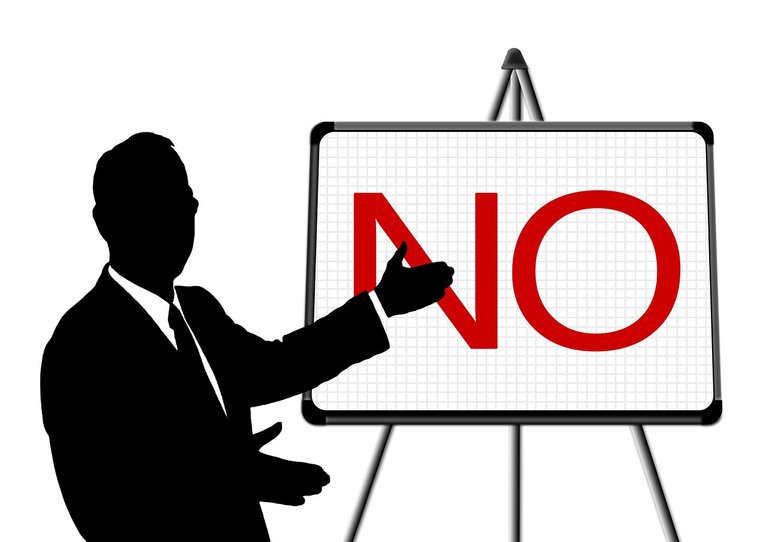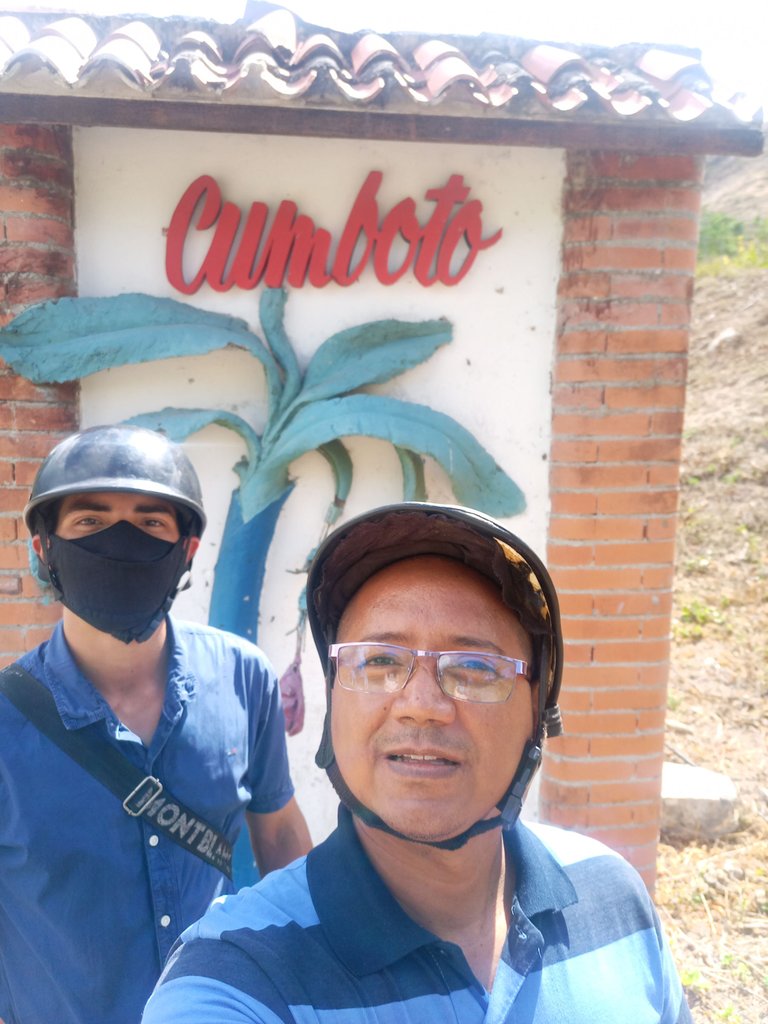
Hola hola, mi gente de @holos-lotus, ¿cómo están? Hoy quiero hablarles de algo que seguro nos ha pasado a todos en algún momento: el comprometernos con más de lo que podemos manejar. Y es que, en nuestra cultura venezolana así como en muchas otras de seguro se le da mucha importancia muy serviciales y no queremos decepcionar a nadie, ¿verdad? Pero ¿qué pasa si decimos que sí a todos los favores que nos piden o nos comprometemos con mucha gente?
Pues les cuento, que eso puede ser un gran problema. Yo misma he pasado por eso, y les digo que es fácil sentirse abrumado y estresado cuando hay demasiadas cosas en nuestra lista de tareas pendientes. Y es que, si no aprendemos a decir que no de vez en cuando, podemos terminar sobrepasando nuestros límites y comprometiendo nuestra salud mental y física. Así que mi sugerencia para contrarrestar el estrés es ser modesto reconocer nuestras limitaciones y en definitiva saber cuando es tiempo de decir que no a algún favor o invitación.
Pero, ¿decir que no nos hace malas personas? ¡Para nada! Al menos eso pienso yo. Es importante saber cuándo decir que no para proteger nuestro propio bienestar. No se trata de ser egoístas, sino de poner límites saludables. Y es que, si no lo hacemos, podemos termina sintiéndonos agotados y sin energía y terriblemente estresados.
De hecho, decir que no de vez en cuando nos puede ayudar a controlar nuestro estrés. Si nos comprometemos con menos cosas, tendremos más tiempo y energía para dedicar a las cosas que realmente importan. Y así podremos hacerlas bien y sin preocuparnos por todo lo demás.
Claro, decir que no puede ser difícil en algunos casos. A veces sentimos que estamos decepcionando a la otra persona que no somos “chéveres” o que estamos perdiendo una oportunidad importante. Pero les digo que es mejor ser honestos y decir que no podemos hacer algo, en lugar de comprometernos y no poder cumplir con lo prometido. Aquí decimos cocinar varios conejos a la vez, y el resultado es que se quema alguno.
Hello hello, my people from @holos-lotus, how are you? Today I want to talk to you about something that has surely happened to all of us at some point: committing ourselves to more than we can handle. And it is that, in our Venezuelan culture as well as in many others, for sure, great importance is attached to being very helpful and we do not want to disappoint anyone, right? But what happens if we say yes to all the favors that are asked of us or we commit to many people?
Well, I tell you, that can be a big problem. I've been there myself, and I tell you it's easy to feel overwhelmed and stressed when there's too much on our to-do list. And it is that, if we do not learn to say no from time to time, we can end up exceeding our limits and compromising our mental and physical health. So my suggestion to counteract stress is to be modest, recognize our limitations and ultimately know when it's time to say no to a favor or invitation.
But does saying that it does not make us bad people? Not at all! At least I think so. Knowing when to say no is important to protect our own well-being. It's not about being selfish, but about setting healthy boundaries. And it is that, if we do not, we can end up feeling exhausted and without energy and terribly stressed.
In fact, saying no from time to time can help us manage our stress. If we commit to less, we'll have more time and energy to spend on the things that really matter. And so we can do them well and without worrying about everything else.
Sure, saying no can be difficult in some cases. Sometimes we feel like we're letting the other person down that we're not “cool” or that we're missing out on an important opportunity. But I tell them it's better to be honest and say we can't do something than to commit and fail to deliver. Here we say to cook several rabbits at the same time, and the result is that some of them burn.

Personalmente, he tenido que hacer un gran esfuerzo para aprender a decir que no. Me ha tomado tiempo encontrar el equilibrio entre ayudar a los demás y cuidar de mí mismo. Pero les aseguro que ha valido la pena. Ahora tengo más tiempo para mí, para mis seres queridos y para mis intereses personales. Y me siento más en control de mi vida y de mis emociones.
Recuerdo un momento en mi vida en el que me encontraba diciendo "sí" a todas las solicitudes de ayuda que me pedían, sin importar lo ocupado que estuviera en ese momento. Como resultado, comencé a sentirme abrumado y estresado. Me di cuenta de que estaba comprometido con demasiados proyectos a la vez, lo que me impedía hacer un trabajo de calidad en cualquier área.
Recuerdo en particular un día en el que mi amigo me pidió que lo ayudara a mudarse de casa. Aunque tenía muchos otros compromisos ese día, le dije que sí sin pensarlo dos veces. Me encontré corriendo de un lugar a otro, tratando de cumplir con todos mis compromisos y ayudar a mi amigo al mismo tiempo. Al final del día, estaba agotado física y emocionalmente, y me di cuenta de que había perdido todo el tiempo para hacer mis propias cosas.
Personally, I have had to work hard to learn how to say no. It has taken me time to find the balance between helping others and taking care of myself. But I assure you that it has been worth it. Now I have more time for myself, for my loved ones and for my personal interests. And I feel more in control of my life and my emotions.
I remember a time in my life when I found myself saying "yes" to every request for help, no matter how busy I was at the time. As a result, I started to feel overwhelmed and stressed. I realized that I was engaged in too many projects at once, which prevented me from doing quality work in any one area.
I particularly remember one day when my friend asked me to help him move house. Although I had many other commitments that day, I said yes without a second thought. I found myself running from place to place, trying to keep all my commitments and help my friend at the same time. At the end of the day, I was physically and emotionally exhausted, realizing that I had wasted all my time doing my own thing.

A partir de esa experiencia, me di cuenta de que decir "sí" a todo el mundo no era sostenible y que tenía que establecer límites saludables en mis relaciones. Empecé a decir "no" a algunas solicitudes, especialmente a las que no eran prioritarias o que no me interesaban realmente. Aprendí que no estaba siendo egoísta al decir que no, sino que estaba estableciendo prioridades y cuidando mi propia salud emocional y mental. Además no siempre se ayuda a alguien cuando siempre les resolvemos las cosas sin permitirle evolucionar, pero eso seria tema de otro post.
Aprendí a decir "no" sin sentirme mal por ello. Me di cuenta de que, al establecer límites saludables, podía enfocar mi energía y tiempo en las cosas que eran importantes para mí y para mi bienestar. Aprendí que al decir "no" de vez en cuando, podía controlar el estrés y tener más tiempo para mí mismo, mi familia y mis amigos cercanos.
De verdad que esta iniciativa de @emiliorios me pereció interesantísima y me hizo pensar bastante para plasmar mis ideas, hasta el momento los compañeros han escrito cosas muy interesantes y sus experiencias son muy útiles, me identifico con muchos de ustedes y les agradezco por compartir. Con estas palabras me despido, esperando que estén bien y agradeciéndoles por leer mi post hasta este punto.
Quiero dejar claro todavía me gusta hacer favores y ayudar a los demás, pero ahora trato de ser más equilibrado al decir "sí" y "no". Es importante recordar que cuidar de nuestra propia salud mental y física es crucial y que decir "no" no nos hace malas personas. Al hacer un esfuerzo por encontrar un equilibrio, podemos seguir ayudando a los demás mientras cuidamos de nosotros mismos también. ¡Cuidémonos y seamos felices!
From that experience, I realized that saying "yes" to everyone was not sustainable and that I had to set healthy boundaries in my relationships. I started to say "no" to some requests, especially the ones that were not a priority or that did not really interest me. I learned that I wasn't being selfish by saying no, but that I was setting priorities and taking care of my own emotional and mental health. In addition, someone is not always helped when we always solve things for them without allowing them to evolve, but that would be the subject of another post.
I learned to say "no" without feeling bad about it. I found that by setting healthy boundaries, I could focus my energy and time on the things that were important to me and my well-being. I learned that by saying "no" from time to time, I could manage stress and have more time for myself, my family, and close friends.
I really found this initiative by @emiliorios very interesting and it made me think a lot to translate my ideas, so far the colleagues have written very interesting things and their experiences are very useful, I identify with many of you and I thank you for sharing. With these words I say goodbye, hoping you are well and thanking you for reading my post up to this point.
I want to make it clear that I still like to do favors and help others, but now I try to be more balanced when saying "yes" and "no." It's important to remember that taking care of our own mental and physical health is crucial, and that saying "no" doesn't make us a bad person. By making an effort to find a balance, we can continue to help others while taking care of ourselves as well. Let's take care and be happy!

Hola apreciado @juberth1983, me ví reflejada totalmente en tus experiencias y cómo fue necesario aprender a decir que NO. En una ocasión era tanto mi angustia que decidí ir al psicólogo y lo primero que me dijo fue"tu ayuda deja de ser buena cuando te perjudica a ti"allí entendí muchas cosas,las personas a veces se valen de nuestra bondad para manipular,controlar y querer manejar nuestro tiempo. Eso no es amor es egoísmo. Así que felicito que tu proceso fuera lento pero seguro,a mí también me costó mucho pero al final lo entendí y no por eso me considero mala persona,al contrario, empecé a ser considerada conmigo,cosa que nadie hacía por mí.👍🏼👍🏼👍🏼👍🏼👍🏼🎈🎈🎈🎈🎈🎈👋👋👋👋😜
De verdad que hay que hacer un esfuerzo consciente para tener una vida equilibrada, Te agradezco tu comentario y me alegro que te identificaras con lo que escribi. Un abrazo cuidate.
Me gusta esa expresion de tu psicologo, es la relaidad
Qué bueno leerte @juberth1983
Nunca se me pasó por la mente esta sugerencia tan concreta de aprender a decir sí y a decir no, cuando sea necesario.
Lo cierto es que la asertividad es antiestrés, pues nos ayuda a saldar cuentas de forma inmediata y a no dejar pendientes por realizar sin deseo o sin ganas; lo que equivale a hacer las cosas porque uno teme la reacción del otro.
La culpa es algo que hay que manejar bien para poder aprender a decir no.
Mil gracias por tu participación.
Hola @emiliorios la verdad es que la reiz de mi estres fue por mucho tiempo tratar de ayudar y hacer cosas por otros. Una amiga que trato mi problema de anciadad me recalcaba vez tras vez que no soy un supeheroe para salvar a todo el mundo. Me ha costado mantener el equilibrio pero el resultado es que el estres y la anciedad los he tenido a raya por un buen tiempo. Gracias `por leer mi post y por tu comentario, lo aprecio
Al contrario, @juberth1983 Gracias a tí por compartir esta publicación.
Qué importante es aprender a decir que no amigo @juberth1983, parte de nuestro bienestar, como has señalado, depende del buen manejo del tiempo, y saber priorizar porque no se trata de decir no por decirlo, sino que al evaluar la situación nos puede parecer abusiva o que nos distrae de cosa importante que tenemos que hacer y si no se trata de una emergencia que nosotros podamos solucionar, lo mejor es decir, No.
Saludos y que estés muy bien.
Si es verdad amiga @damarysvibra ademas al guiarnos por una agenda o un horario trato de no comprometerme mas de la cuenta ya que el dia tiene solo 24 horas. aprecio tu comentario, que bueno que leiste mi post, Gracias